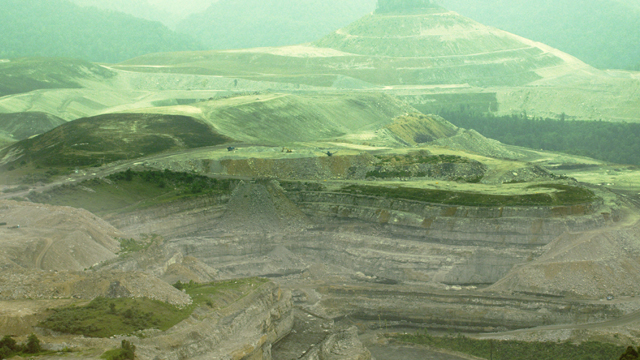Allow me to introduce to you a narrative which is commonplace in mainstream environmental thinking: it is an argument that you have surely heard before, and although it may be an enticing explanation for the phenomenon that is the current environmental crisis, it quickly falls short once further investigated. It is the argument that the human population is growing too large, and that there will soon no longer be enough resources to go around. That is, humans are soon reaching the natural carrying capacity that the planet can handle, and once it does, social collapse will ensue.
This theory can be referred to as ecoscarcity, and according to its proponents, it is this alleged population crisis that is causing all of the environmental crises characteristic of this time, of the Anthropocene. Overpopulation is to blame for the depletion of the world’s biodiversity stocks, for the pollution of the world’s rivers, lakes, and streams, for the overexhaustion of the world’s soils and land, and for all of the other obstacles which stand in the way of those dreaming of sustainability and environmental wellbeing.
The ecoscarcity perspective began with Thomas Malthus, and his notorious publication, An Essay on the Principle of Population. Malthus argued that the population was growing exponentially, and that food production would not be able to keep up, which would result in the starvation of the poor. Malthus saw this outcome as a natural resolution of the issue, and went so far as to claim that poverty alleviation was a bad idea, because it would perpetuate the so-called “problem of the poor” – after all, it was the working class which was contributing the most to the population boom, ergo it must be their fault for reproducing so much.
Rather than interrogate the social and economic conditions which have perpetuated the degradation of the environment, this thesis misses the whole picture
It may be clear by now where this is headed: this thesis of overpopulation being the root of all environmental degradation and resource depletion is twisted. Rather than interrogate the social and economic conditions which have perpetuated the degradation of the environment, this thesis misses the whole picture. By attempting to look at environmental issues from a purely ecological lens, Malthus effectively naturalised (i.e., de-socialised) issues which are inherently social such as poverty, disease, and inequality. He boils down the issue to a matter of humanity as a species.
Before going further, I would like to clarify that I am not trying to claim that there is no impact of population growth on environmental health, but rather that it alone does not explain the massive amount of environmental degradation which this planet has undergone.
The ecoscarcity argument is an oversimplification, which fails to critique society itself, and the patterns of our daily lives (especially those of us in countries in the Global North) which contribute to the ecological destruction we are currently witnessing. It does not interrogate our patterns of production and consumption, and the simple fact that a lot of us are guzzling far more energy, food and other resources than we need. Malthusian theory fails to confront the massive inequalities inherent in the way goods are distributed across the global market and the violent political processes which lie at the base of the capitalist economic system.
Thinking of the environmental crisis in terms of ecoscarcity is dangerous. This perspective is often used as a way to legitimise the marginalisation and forced “modernisation” and displacement of communities. An example of how this kind of thinking can be dangerous can be found in Irish history, with the Irish Potato Famine. I mentioned earlier that Malthus thought poverty alleviation would only lead to the perpetuation of the problem – this comes into play here.
The ecoscarcity argument is an oversimplification, which fails to critique society itself, and the patterns of our daily lives (especially those of us in countries in the Global North) which contribute to the ecological destruction we are currently witnessing
The British elite in London at the time of the famine were all too happy to follow Malthus’s lead and blame the poor for their misery, seeing them as lazy and unproductive. They thus claimed that which Malthus had postulated half a century prior, that the population had grown too large for the limited resources on that tiny island of Ireland. Of course, lo and behold, this was not the case. Today, it is widely agreed that the most glaring cause of the famine was not a plant disease, in fact, but England’s long-running political hegemony over Ireland and the exploitative nature of the movement of products from Ireland to England.
It is true that humans are the cause of the environmental crisis. Carbon dioxide concentrations are at new heights, due to the anthropogenic burning of fossil fuels. We are consuming a lot, and polluting the planet in our wake. However, when we talk about this, we need to make sure we consider which humans we mean. It is not because of the poor, and not because we as a species have exceeded the natural limits of the planet. It is, rather, a complex issue caused by a number of factors inherent to our existing modes of socio-ecological systems.







